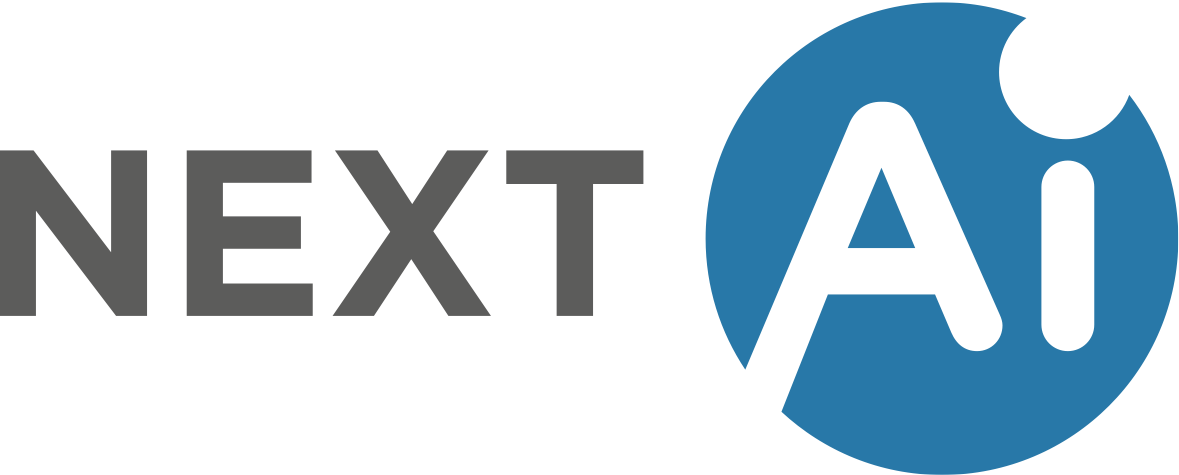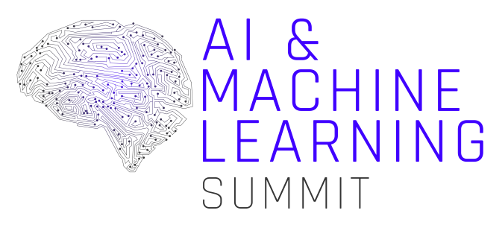

Learn how to code papers with TensorFlow, MXNet, PyTorch, CNTK and more @ UAI 2017
August 11th
This summer the heart of machine learning is beating in Australia. Three major conferences ICML, UAI and IJCAI are taking place back to back in Sydney and Melbourne from August 6th to August 25th. On August 11th UAI and ICML are colocating the ICML workshops and UAI tutorials. As part of these events and in an effort to bridge the gap between academic papers and their implementation, MLTrain is teaming up with UAI to provide a full day of training events. We will host several 3 hour sessions during which instructors will be teaching how to implement academic papers using state of the art frameworks such as TensorFlow, PyTorch, MXNet, CNTK and others. These events will be presented as a combination of lectures and hands on exercises using ipython notebooks, and applications using real data. Events like these will allow participants to take famous academic papers and apply them successfully in industry. Please follow us on facebook and twitter for updates and news.
The registration for the MLTrain training event is independent from the UAI conference.
To register click here
Program
| Time | Room 1 @ICC C3.1 | Room 2 @ICC C4.2 |
|---|---|---|
| 9:00 - 12:00 | Generative Models Sponsored by Disney | Neural Abstract Machines Sponsored by Uber |
| 13:00 - 16:00 | LSTMs and Text | Reinforcement Learning |
| 16:00 - 19:00 | Deep Recommender SystemsSponsored by Amazon | Speech and Time series Sponsored by NVIDIA |
Instructions
Dear AttendeesWe are very excited to kick off MLTrain @UAI 2017. This is the first time we an event like that is introduced at an Academic conference and we hope that it will become part of the conference. We have prepared a virtual machine loaded with all the notebooks, papers and other material of the training. You can download it and install it on your machine. You will need to install virtual box on your machine and import the VM file (mltrain_vm.ova). Instructions for importing a virtual machine can be found here. We are working on building Amazon EC2 instances, so that you can access the material through the cloud. The notebooks were provided by the authors and they were written in the framework of their preference. Although they are all working, keep in mind that training models takes time and most likely you will not be able to train a model end to end during the class. The focus of the workshop is on understanding the papers and how they are coded. The material is rich and most likely we will not be able to go through all of it during the class. You will have access to the material of every session. Chris Fregly will demonstrate deployment on the cloud in 3 of the sessions. At last we would like to thank Amazon AWS, Uber and Disney for making this event possible.
Trainers
Chris Fregly

Chris Fregly is Founder and Research Engineer at PipelineIO, a Streaming Machine Learning and Artificial Intelligence Startup based in San Francisco. He is also an Apache Spark Contributor, a Netflix Open Source Committer, founder of the Global Advanced Spark and TensorFlow Meetup, author of the O'Reilly Training and Video Series titled, "High Performance TensorFlow in Production." Previously, Chris was a Distributed Systems Engineer at Netflix, a Data Solutions Engineer at Databricks, and a Founding Member and Principal Engineer at the IBM Spark Technology Center in San Francisco.
Nikolaos Vasiloglou

Nikolaos Vasiloglou holds a PhD from the department of Electrical and Computer Engineering at Georgia Institute of Technology. His thesis was focused on scalable machine learning over massive datasets. After graduating from Georgia Tech he founded Analytics1305 LLC and Ismion Inc. He has architected and developed the PaperBoat machine learning library which has been successfully integrated and used in the LogicBlox and HPCCSystems platforms. He has also served as a machine learning consultant for Predictix, Revolution Analytics, Damballa, Tapad and LexisNexis. Vasiloglou has recently focused his studies on Google's TensorFlow and has been active in developing the syllabus for a series of TensorFlow training events.
Alex Dimakis

Alex Dimakis is an Associate Professor in the Electrical & Computer Engineering department at The University of Texas at Austin. Prof. Dimakis received his Ph.D. in 2008 and M.S. degree in 2005 in electrical engineering and computer sciences from UC Berkeley and the Diploma degree from the National Technical University of Athens in 2003. During 2009 he was a CMI postdoctoral scholar at Caltech. He received an NSF Career award in 2011, a Google faculty research award in 2012 and the Eli Jury dissertation award in 2008. He is the co-recipient of several best paper awards including the joint Information Theory and Communications Society Best Paper Award in 2012.
Sessions
Chris Fregly will demonstrate how you can easily deploy tensorFlow models on the cloud with the Spark frameworkWe have also created a service that has summaries of the papers www.snap-learn.com
Generative Models
One of the holy grails of machine learning is the ability to generate structured data from noise. Modern Deep Neural Networks such as Generative Adversarial Networks (GANs) and Variational Auto-Encoders (VAEs) make it possible to generate synthetic images that look very realistic. In this session you will learn the theory and implementation of different versions of the above algorithms.- Wasserstein Generative Adversarial Networks Martin Arjovsky (New York University) - Soumith Chintala (Facebook) - Léon Bottou (Facebook) ICML
- Learning Texture Manifolds with the Periodic Spatial GAN Nikolay Jetchev (Zalando Research) - Urs M Bergmann (Zalando Research) - Roland Vollgraf (Zalando Research) ICML
- Conditional Image Synthesis with Auxiliary Classifier GANs Augustus Odena (Google Brain) - Christopher Olah (Google Brain) - Jon Shlens (Google Brain) ICML
- Compressed Sensing using Generative Models Ashish Bora (University of Texas at Austin) - Ajil Jalal (University of Texas at Austin) - Eric Price (UT-Austin) - Alexandros Dimakis (UT Austin) ICML
- PixelCNN models with Auxiliary Variables for Natural Image ModelingAlexander Kolesnikov (IST Austria) - Christoph Lampert (IST Austria) ICML
- Adversarial Sets for Regularising Neural Link Predictors
Reinforcement Learning
One of the biggest success of AI is the explosion of autonomous agents who can play Atari Games on their own and beat human performance. This is because of the recent advances in Reinforcement Learning. In this tutorial you will learn about the seminal papers that contributed in the advance of the field. You will code them and see how you can train agents that play games with the openAI gym framework.- Deep Value Networks Learn to Evaluate and Iteratively Refine Structured Outputs Michael Gygli (Gifs.com) - Mohammad Norouzi (Google) - Anelia Angelova (Google Brain) ICML
- Reinforcement Learning with Deep Energy-Based Policies Tuomas Haarnoja (UC Berkeley) - Haoran Tang (UC Berkeley) - Pieter Abbeel (OpenAI / UC Berkeley) - Sergey Levine (Berkeley) ICML
Speech and Time series
Speech recognition is an old machine learning research problem that has been open for several decades. LSTMs combined with multilayer perceptrons give excellent performance in ASR as they can model the acoustic part and the language model of speech. We will also see how the same technique can be used for other time series data.- Soft-DTW: a Differentiable Loss Function for Time-Series Marco Cuturi (ENSAE / CREST) - Mathieu Blondel (NTT) ICML
- Cascade Dynamics Modeling with Attention-based Recurrent Neural Network Yongqing Wang, Shenghua Liu, Huawei Shen, Jinhua Gao, Xueqi Cheng IJCAI
- Neural Audio Synthesis of Musical Notes with WaveNet Autoencoders Cinjon Resnick (Google Brain) - Adam Roberts (Google Brain) - Jesse Engel (Google Brain) - Douglas Eck (Google Brain) - Sander Dieleman (DeepMind) - Karen Simonyan (DeepMind) - Mohammad Norouzi (Google) ICML
Neural Abstract Machines and Logical Tasks
One of the applications of AI is solving logical tasks like the ones described by BABI. Deep Learning has supercharged Theorem Provers and has created new architectures that can solve sudoku puzzles. Creating computers who are differentiable end to end is another milestone. These computers can learn how to execute algorithms by example.- DeepStory: Video Story QA by Deep Embedded Memory Networks Kyungmin Kim, Min-Oh Heo, Seong-Ho Choi, Byoung-Tak Zhang IJCAI
- OptNet: Differentiable Optimization as a Layer in Neural Networks Brandon Amos (Carnegie Mellon University) - Zico Kolter (Carnegie Mellon University) ICML
- Programming with a Differentiable Forth Interpreter Matko Bošnjak (University College London) - Tim Rocktäschel (University of Oxford) - Jason Naradowsky (University of Cambridge) - Sebastian Riedel (UCL)
- Deep Value Networks Learn to Evaluate and Iteratively Refine Structured Outputs
LSTMs and Text
Understanding text and human language is the epitome of AI. In this tutorial you will see how you can extract information from text with traditional word2vec models and with more advanced like memory networks. Then you will build a simple system that can answer questions and also generate text with Recurrent Neural Nets.- Embedding Senses via Dictionary Bootstrapping UAI
- Earth Mover Distance Pooling over Siamese LSTMs for Automatic Short Answer Grading Sachin Kumar, Soumen Chakrabarti, Shourya Roy IJCAI
Deep Recommender Systems
Sponsored by Amazon One of the most successful and traditional areas of Machine Learning is recommender systems. Although traditional methods like matrix factorization have been successful, modern AI and deep learning methods are improving the performance. In this tutorial you will learn how to improve your models by incorporating timestamps with dynamical systems. You will also find out how content and rating info can be better fused together- TransNet: Translation-Based Network Representation Learning for Social Relation Extraction Cunchao Tu, Zhengyan Zhang, Zhiyuan Liu, Maosong Sun IJCAI
- Attentional Factorization Machines: Learning the Weight of Feature Interactions via Attention Networks Xiangnan He, Jun Xiao, Fei Wu, Hanwang Zhang, Tatseng Chua IJCAI
- https://github.com/shiyangdaisy23/vqa-mxnet-gluon/...
- https://github.com/gurumurthys/mxnet-image_caption/...
Pricing
| Early bird(finishes June 30th) | Late bird | |
|---|---|---|
| 1 session | $200 | $250 |
| 2 sessions | $350 | $400 |
| 3 sessions | $450 | $500 |
* UAI offers some very compelling sponsorship packages for big companies and startups. For more information and custom packages contact us at uai2017org@gmail.com ** All proceedings from the event will go to AUAI, the non-profit organization that organizes the annual Conference on Uncertainty in Artificial Intelligence (UAI) and, more generally, promotes research in pursuit of advances in knowledge representation, learning and reasoning under uncertainty.
Golden Sponsor

Golden Sponsor

Golden Sponsor

Bronze Sponsor

Bronze Sponsor

Training session Sponsorship

Startup Sponsor

Media Sponsor
